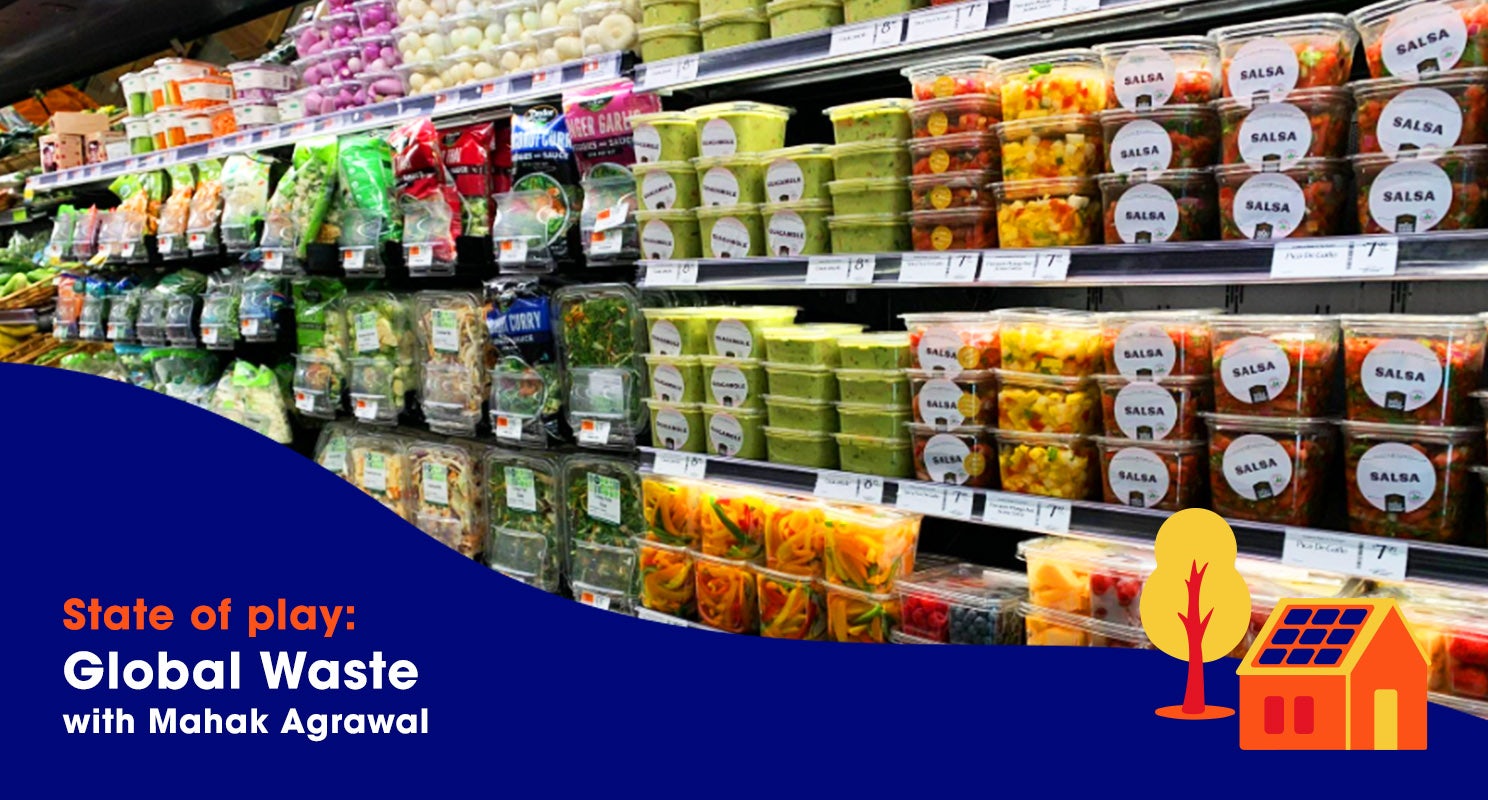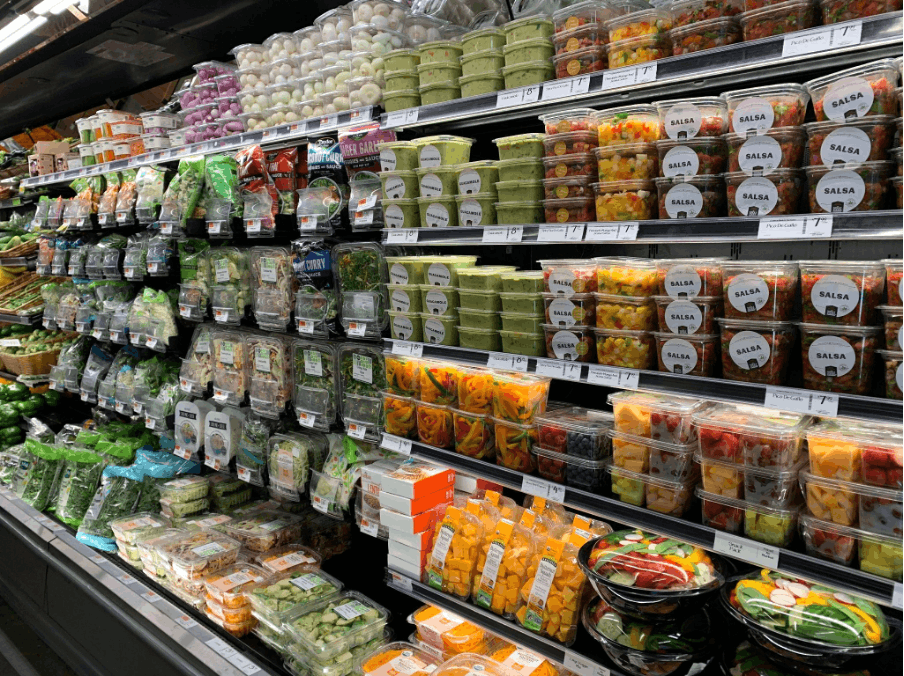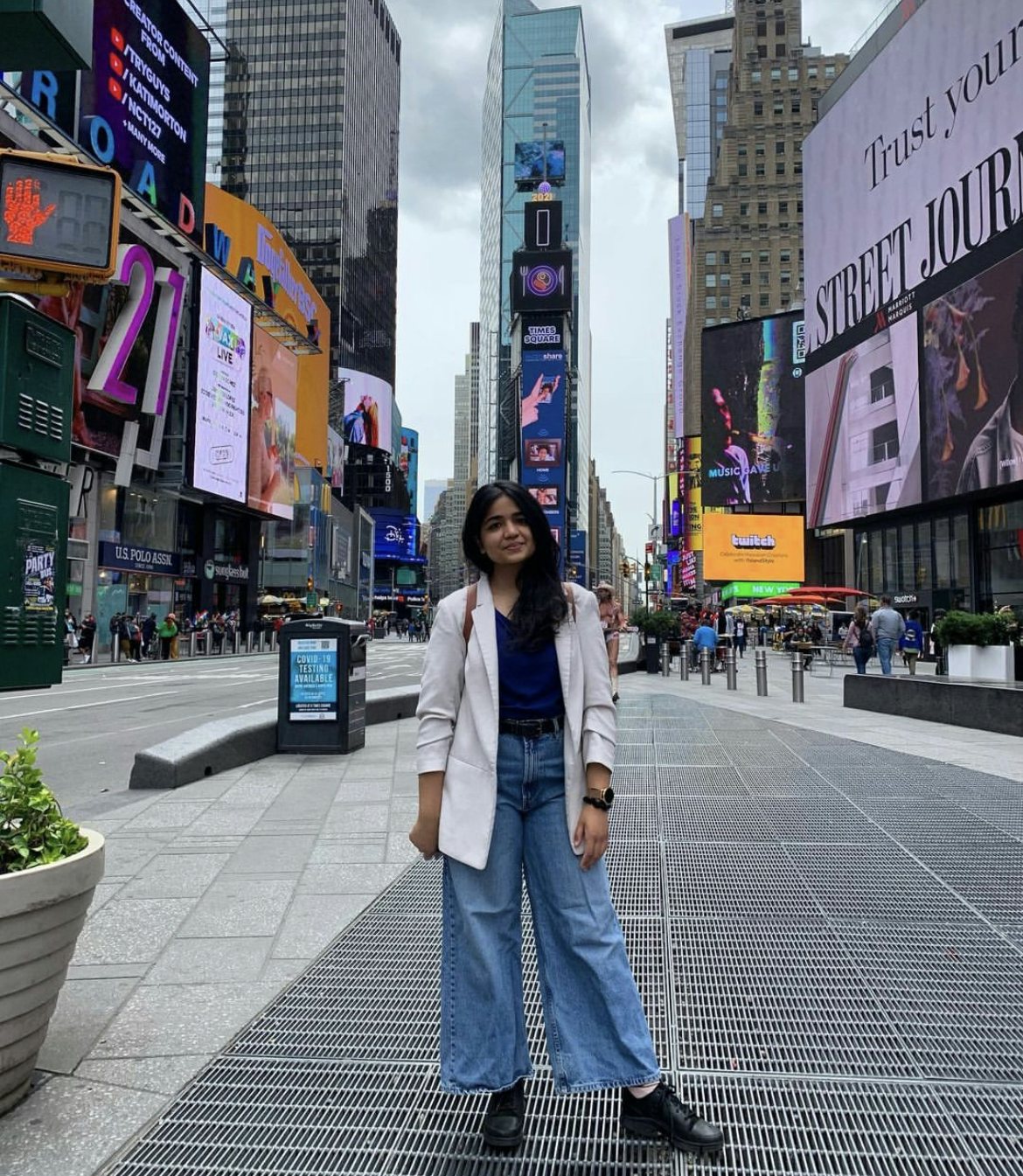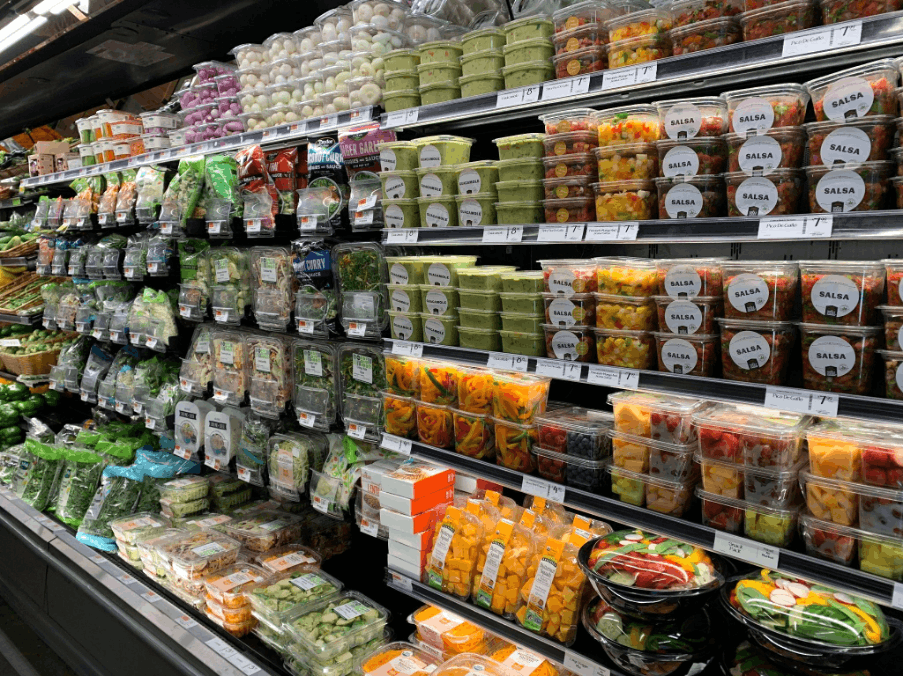Welcome to State of play, a series where we gather insight on the world's most pressing issues. In our second edition, we explore Sustainable Development Goal 12, Responsible Consumption and Production and invited Mahak Agrawal - an emerging leader within sustainability, to provide her insight into the 'state of play' for our global waste problem.
Responsible consumption and production is about doing more and better with less and calls on us to learn how to consume and produce in sustainable ways that do not harm our planet.

Every year, humans generate over 2 billion tons of solid waste —of which one-third is not managed properly and contributes to approximately 5% of global greenhouse gas emissions. That’s roughly equal to the weight of 4,000 Burj Khalifas. What’s more, this waste is estimated to increase to 3.4 billion tons per year by 2050, roughly equivalent to the weight of 7,000 Burj Khalifas.
Head to your nearest supermarket; you’ll find yourself in an aisle of plastics or rather different shapes and sizes of plastic containers stacked on each rack. Some of this plastic packaging is tough to replace with less environmentally damaging product packaging, but most are easily replaceable and avoidable.
Take that box of pre-cut fruit. It is easy to purchase and even easier to consume and discard. That box of pre-cut produce, lying somewhere in your bin or fridge, is a product developed for the fast-paced, time-stressed, or simply lazy consumers, who are willing to shell those extra pounds for a unit of pre-cut produce than spend 5-10 minutes chopping an actual fruit or vegetable, scraps of which can be turned into manure.
Now, let’s be clear supermarkets and policymakers can and must do better, and France has this year led the way by banning single-use plastic on many fruit and vegetable items. But a global problem calls for collective efforts and solutions, and while supermarkets and policymakers slowly wake up – we must take personal responsibility too. Plastic or any form of waste emerging from a supermarket — or much of the capitalist economy — is a big problem and we humans are part of the problem. Our choices are amplifying the quantum and flow of waste across terrestrial and aquatic ecosystems.
Irresponsible choice plays a key part in waste generation and proliferation. For example, as customer demand for the consumption of pre-cut produce increases, the amount of plastic produced and used for selling the pre-cut produce increases, and so does the amount of waste. In fact, for any supermarket or enterprise in the capitalist economy to survive, it needs backers — customers — who understand the ecosystem that the supermarket is operating to fill the demands of its customers, who are willing to feed it by paying more per unit of produce.

While the world is drowning in its waste, a few are investing to mine value from waste. Around 5,000 medals for Tokyo Olympics 2020 were produced from old phones and electronic waste donated by people across Japan. Phool.co in India is giving a new, fragrant life to temple waste by converting the waste into incense sticks and cones. Operating across 20 countries, TerraCycle is working to eliminate the throwaway culture.
Few others are guiding consumers towards responsible choices. ReFill London is a free tap water scheme in London envisioning an end to single-use plastic bottles. Shops and businesses of Costa Coffee, Pret A Manger, Planet Organic, Leon, National Theatre and Tate Modern have joined the scheme too. If you are craving some South Asian food, Hackney based DabbaDrop will deliver a steel “dabba” or container to your home and pick it up the next time you order. DabbaDrop is helping reduce food container waste while improving customer return rates. Is it something new and innovative? Not entirely.
Free tap water schemes and infrastructure have existed in several parts of the world for decades. Delivering food in reusable steel containers and picking it up in the next order is a common practice across South Korea and India. What these schemes and establishments are trying to do is not invent something new but guide the consumers towards choices with lower environmental impact.
Several other entrepreneurs and groundbreakers across the world are changing the way we deal with waste, but they alone cannot stop the world or any city or region from drowning in waste or switching 100% to responsible choices. Why?
Because many times we do not know what is responsible and what is irresponsible. Many times we do not understand the impact of our choices. For instance, opting for a glass bottle over plastic seems like a sustainable choice, even when evidence indicates a larger environmental impact from a glass bottle than a plastic one. In 2005, Chris Jones of the University of California, Berkeley, launched the world’s first online household carbon calculator with the hope that if people were better informed of the emissions their activities were contributing to, they may change select choices in their daily lives and contribute in small ways to save the planet. Nearly 2 decades later, and several calculators later, decoupling environmental degradation from economic growth remains a hope; wasteful consumption and production pattern continue to proliferate.
Till the time tickets to Mars become affordable, and the planet itself becomes habitable, we need to do all we can for the planet we now call home. As citizens and consumers of varied products and services, we need to make responsible choices that help eliminate the concept of waste. We need to embed sustainable consumption and production — and doing more and better with less — in our daily lives. We need to reduce the waste we produce at individual and household levels; we need to mine value from our waste and we need to do it now. We created this mess and now we need to clean plus manage it — together!

* Mahak Agrawal is an urban planner and a former United Nations fellow. As a Shardashish Scholar and Environmental Fellow at Columbia University’s School of International and Public Affairs, Mahak earned her second master's in public administration. She earned her first master’s degree in urban planning from the School of Planning and Architecture Delhi. Mahak currently works at Columbia University’s Center on Global Energy Policy and leads urban adaptability efforts with International Tunnelling and Underground Space Association’s Committee on Underground Spaces (ITACUS).
Recognised for her achievements in accelerating the Sustainable Development Goals in India through public health initiatives, Mahak was nominated for the Gates Foundation’s 2021 Goalkeepers Global Goals Award. In various capacities, she has worked with OECD; the Ministry of Home Affairs and the Ministry of Housing and Urban Affairs, the Government of India; and the Institute of Transport Economics, Oslo. Mahak was an expert reviewer for the Intergovernmental Panel on Climate Change’s Sixth Assessment Report, has authored numerous scientific publications and has presented her works globally, including at the United Nations. In 2021, she delivered a TEDx talk advocating for mining value from waste.
In 2019, she founded the Spatial Perspectives initiative to change the way we view and respond to pressing urban-regional challenges. In her spare time, Mahak experiments with sustainable artworks with her mum.
